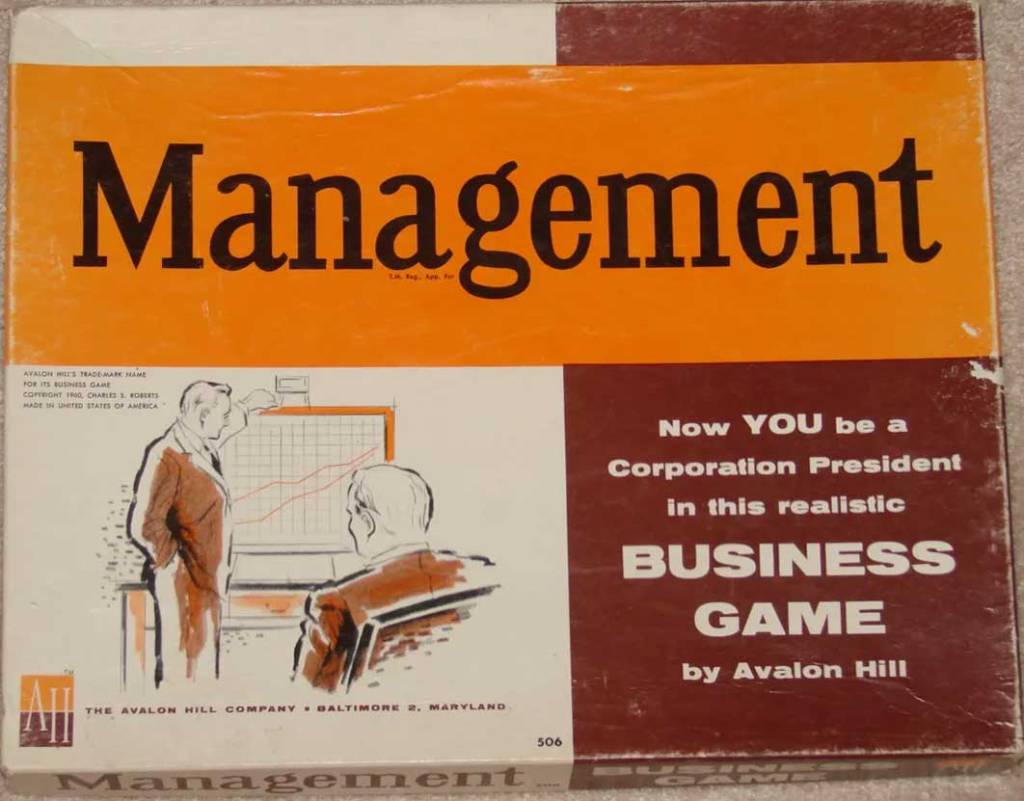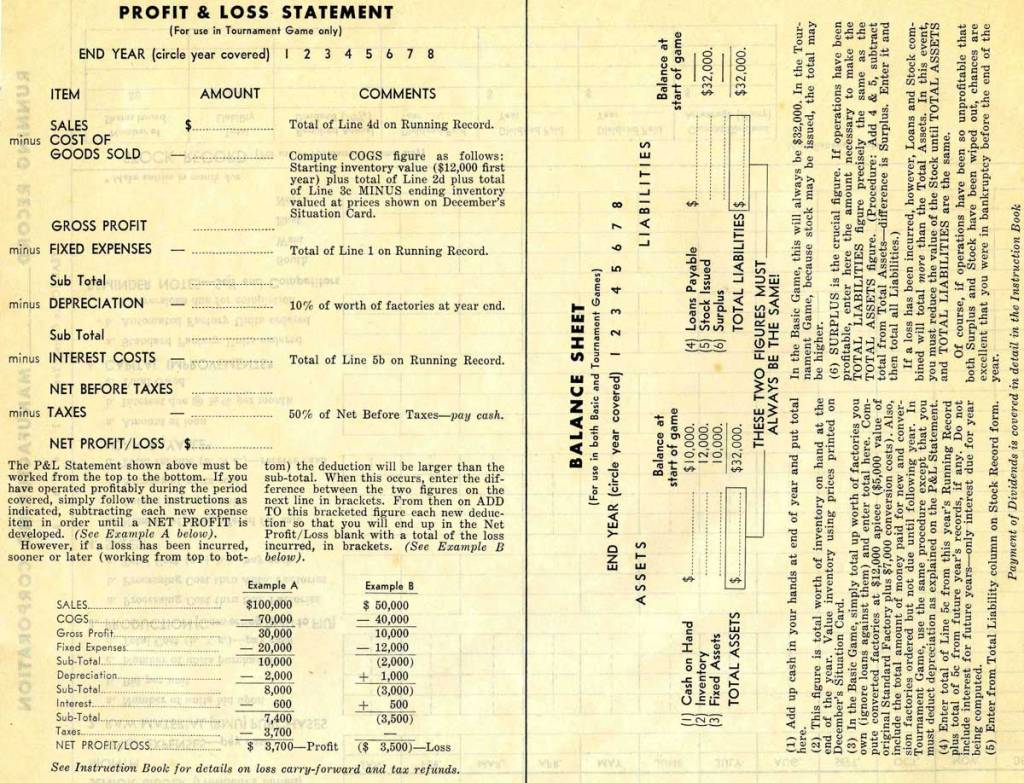What’s pizza got to do with this?
Having been a wargame accessory publisher at Judges Guild in 1976-1978, I felt I could add commentary on this Boardgame Geek post. A guy named Chabuki Cheishvili asked:
Hello, which boardgame would you recommend with “Entrepreneurship” theme, more specifically “Social Entrepreneurship”? I’d like to use it for basic educational tool for students and trainees. It could be heavy euro game too, basicly any game that would come into your mind with this theme, would be appreciated.
I thought about Catan as most “businessesish” and Splendor as resource management. But maybe there are others more specifically oriented. Thanks in advance
So, I answered (with few added bits since):

A 1960 game, Management, is a 2 to 4 player game that deals mainly with bidding for raw materials and selling finished inventory. It also teaches about a balance sheet and profit & loss statement. Teaching these lessons would be a social good compared to hand-waving about how easy it would be to run a business.
I liked it. It was part of my formative years. That and growing up in a family that started businesses. My wife thought it was boring because it was so obvious but then she had a degree in business management!

Once the game is over, you can then add a module where you “spend” your profit on charitable causes to see who won from the standpoint of doing good. Remaining solvent so that your workers have jobs is a definite social good. A bankrupt business could do no good for workers & the public.
Running a business and staying solvent is not easy to start with.
A game judge could provide skin in the game by each first putting in real money to buy a pizza after the game. Then, those who go broke in the game can’t eat the pizza, or if they want to eat they must come up with more real money so others get some of their money back.
Add an extra, non-business player who gets to eat 1/8th of the pizza without putting money in or going through the turn flow. Represents the Government and gets to distract the players by playing tricks on them during the game. Each player could bribe the Government with game money for bid benefits. Those bribes could add up to another piece of pizza.
The important lesson of the government player is that he did not put any real money before the game (for the pizza) and did nothing to produce “goods” during the game. But he degrades the production while getting to eat real pizza later. By their policy proposals, many seem to think that that government workers, elected or hired, have higher morals or efficiency than business people.
Maybe you think I’m being harsh but consider these quotes by a Frenchman who considered the balance between necessary, limited government and a free people:
“If the natural tendencies of mankind are so bad that it is not safe to permit people to be free, how is it that the tendencies of these organizers are always good? Do not the legislators and their appointed agents also belong to the human race? Or do they believe that they themselves are made of a finer clay than the rest of mankind?”
― Frederic Bastiat, The Law
“Socialism, like the ancient ideas from which it springs, confuses the distinction between government and society. As a result of this, every time we object to a thing being done by government, the socialists conclude that we object to its being done at all. We disapprove of state education. Then the socialists say that we are opposed to any education. We object to a state religion. Then the socialists say that we want no religion at all. We object to a state-enforced equality. Then they say that we are against equality. And so on, and so on. It is as if the socialists were to accuse us of not wanting persons to eat because we do not want the state to raise grain.”
― Frederic Bastiat, The Law
And read about his insight about the “broken window fallacy.”

